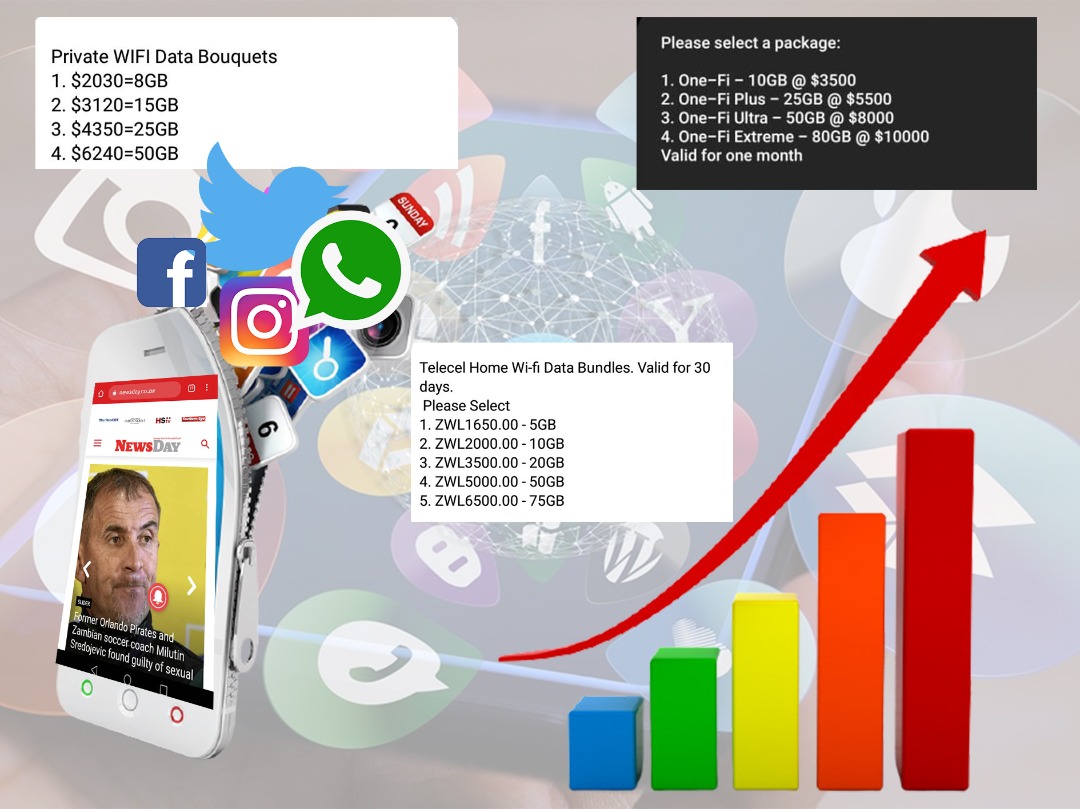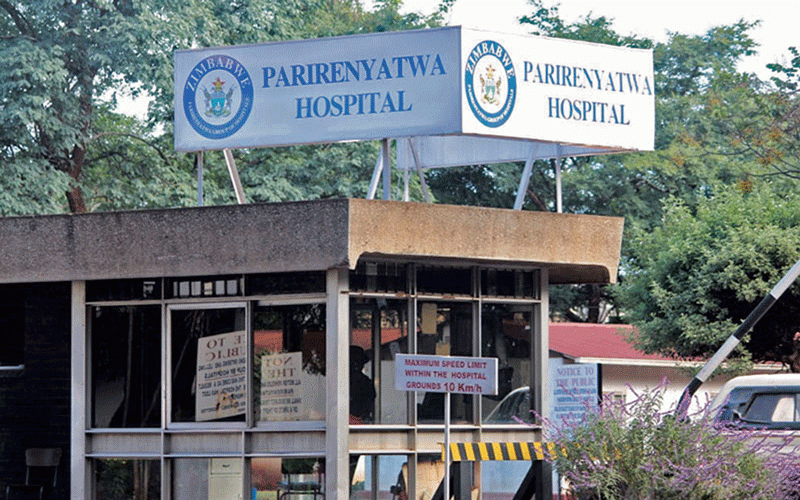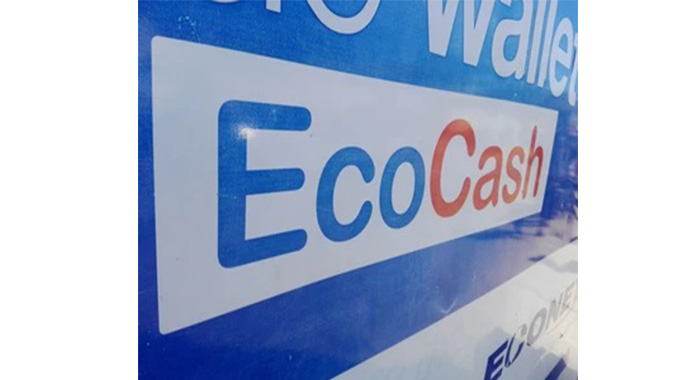
Business Reporter Mobile telecommunication firms NetOne and Econet Wireless Zimbabwe have increased the cost of their data bundles citing rising operating costs.
State-owned mobile service provider NetOne reviewed its data tariffs on Tuesday while Econet announced it will adjust its prices on Thursday. Telecel, the country’s third mobile operator, is expected to follow suit.
Public Notice! pic.twitter.com/XkKgysgLQV
— NetOne Cellular (@NetOneCellular) October 17, 2021
“Please be advised that we are reviewing our bundle tariffs with effect from 19 October 2021,” NetOne said in a statement.
We thought that zvariri line remusangano mukuru muchangoriitawo Zupco manje heyyyy, pakashata 🤦🤦🤦
— Tinashe P Muchikichi(Ziklagite)🇿🇼 (@doctorphill1) October 18, 2021
According to industry sources, the tariff increase – averaging 30 percent on data, voice and SMS bundles – comes at a time when fuel prices have gone up while the country is also experiencing high power outages, thus pushing operating costs through the roof.
The Postal and Telecommunications Regulatory Authority of Zimbabwe (Potraz) director general Dr Gift Machengete recently said the telecoms industry’s operating costs grew by 15.8% to ZW$8.9 billion in the second quarter of 2021, up from ZW$7.6 billion in the first quarter.
It said Econet’s operating costs increased by 16.2%, from ZW$5.6 billion to ZW$6.6 billion, while NetOne and Telecel operating costs surged by 10.2% and 42.1% respectively.
Dear Valued Customers,
Please note, we will review our Voice, Data & SMS promotional bundle prices effective Thursday 21 October 2021.
Visit https://t.co/36USZKhvoj for more information. pic.twitter.com/Y35BRKTAzl
— Econet Wireless (@econetzimbabwe) October 19, 2021
“Staff costs, depreciation, and bandwidth costs continued to constitute the bulk of mobile network operating costs,” Dr Machengete said.
Price hikes are a result of the inefficiencies and non-adherence of the Dutch foreign currency auction rules which are showing up in delays in settlement, price increases and increases in inflation.
They say the allocated forex has not been sufficient to upgrade the network.
— Farai Nkomo (@farainkom) October 19, 2021
The Potraz boss added that it was important for the sector, which continues to be critical in keeping the economy running in the midst of the Covid-19 pandemic by providing businesses with essential connectivity and resilience, to charge competitive tariffs and recoup their costs.
Someone rightly said that these prices are aimed at balancing viability of operators and service affordability for consumers hence they are needed. Already, the black market exchange rate has gone up within a month leaving all prices lagging behind.
— Brilliant Takudzwa (@BrilliantTakud1) October 19, 2021
“The shift to the auction based foreign currency market system seemingly eased inflationary pressures, but did not eliminate them completely as prices for goods and services, including fuel and energy, continued to be adjusted in line with the dynamics of the new exchange rate regime,” he said.
“Notwithstanding the above, foreign currency shortages continued to bedevil the economy at large, with implications on network expansion, upgrade and maintenance, taking a toll on quality of service as demand for data surged for operators. Foreign currency constraints also affected universal service projects targeted for rural and underserved areas.”
Dr Machengete noted national lockdowns, introduced to combat the spread of the deadly coronavirus pandemic, resulted in an unparalleled surge in the use of the internet in providing e-services, among them e-learning, e-shopping, e-worshiping and e-health.
Given the current situation, the rate could hit 400 by Dec and the only way to avert an economic collapse is through full dollarization of the economy hence prices of goods and services will continue to spiral without check. No one should be blamed, it’s the environment itself.
— Maudy Phiri (@maudy_phiri) October 19, 2021
“Indeed, the pandemic has shone a light on the urgent need for accelerating digital transformation. The necessity for greater investment in digital technologies, skills, resilience and innovation can never be overemphasised,” he said.











